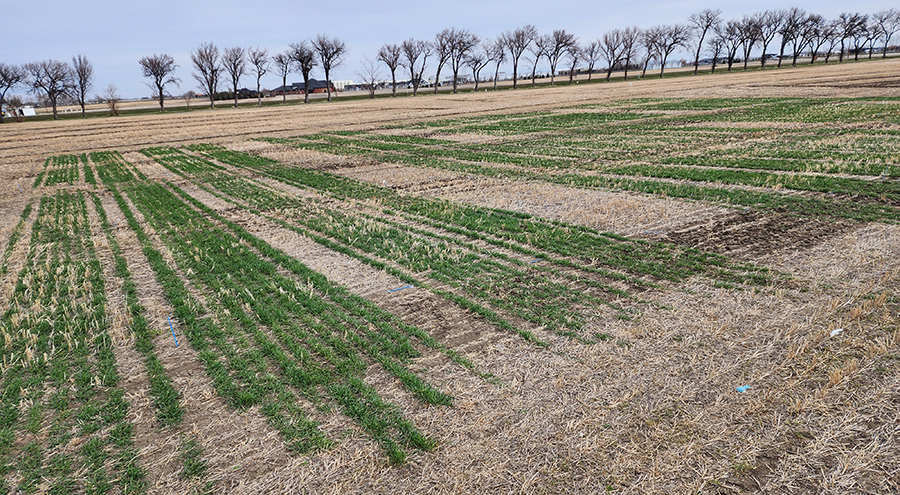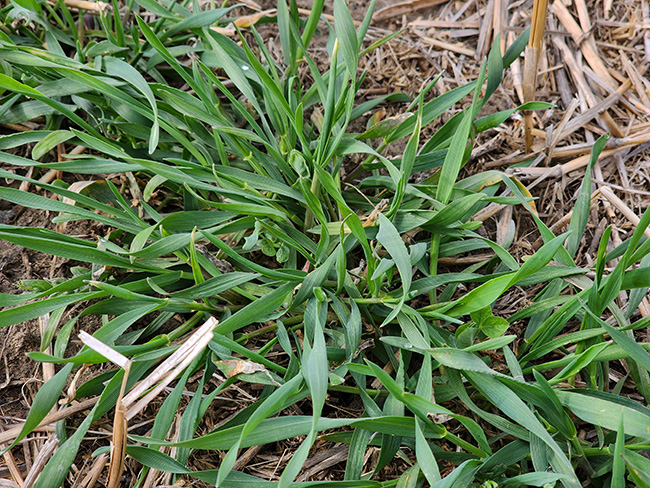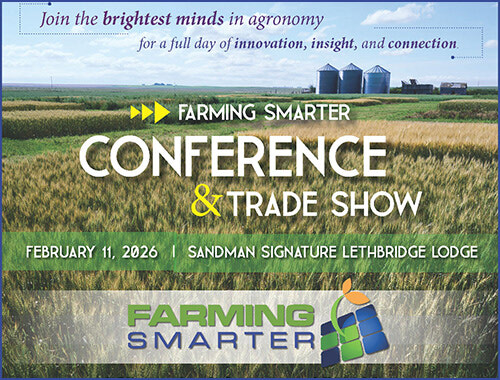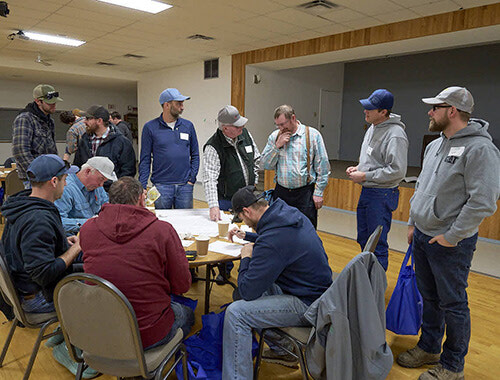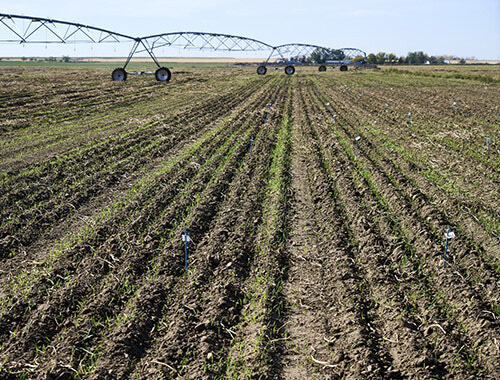Farming Smarter has a key focus this year on soil conservation and its teams will work together to develop innovative solutions to address soil erosion in agriculture.
Soil erosion is a serious problem that affects the productivity, profitability and sustainability of crop production systems. It occurs when wind or water move soil particles resulting in loss of topsoil, organic matter, nutrients and water-holding capacity. Soil erosion can also cause environmental issues such as air pollution, water contamination, reduced biodiversity and increased greenhouse gas emissions. For more in-depth information about the impact of soil erosion, read the soil erosion series on our website starting with Yes, blowing soil breaks a law
|
|
|
Image Caption: Rows of fall rye, seeded for our Saving Soils trials in Lethbridge. Photo taken, 2023 |
One innovative solution to soil erosion is cover cropping with roller crimping. This technique involves planting a cover crop between the main crop rows and then flattening it with a roller crimper at its base to form a protective layer on the soil surface. This layer can help reduce soil erosion by preventing wind and water from detaching and transporting soil particles. It can also provide other benefits such as weed suppression, moisture retention, nutrient cycling and pest management.
Dr. Gurbir Dhillon, Farming Smarter Research Scientist, and Mike Gretzinger, Research Coordinator launch the Saving Soils research project in 2023. They have a strong interest in improving soil health and environmental services of agroecosystems, and they design innovative research projects to enhance the sustainability and productivity of crop production systems, especially in southern Alberta. They explain that cover cropping with roller crimping is a relatively new practice in Canada but successfully adopted in other countries such as Brazil and the United States.
Despite a late start to the season due to cold weather, Dhillon and Gretzinger made significant progress in spring preparations, mapping out suitable trial locations for the planned studies. They coordinate the Agronomy Team that coordinates protocols, seeding, spraying, data collection, pictures, harvest, and data processing for the small plot trials and demos.
Dhillon and Gretzinger emphasize the importance of planning and organization in agriculture. Gretzinger states, “We have a three and a half week window where we must get all that seeding done. So, we must have all our ducks in a row to get it done.” He adds, “It involves lots of it is logistics.”
As the weather improves, Farming Smarter’s researchers will focus more on field work, including seeding trials. Like farmers, the research teams face logistical challenges, especially during the time-sensitive seeding window. They must be prepared and organized to make the most of their limited time in the field.
The Farming Smarter team works hard to develop innovative solutions to soil erosion and shares findings with the wider agricultural community. They believe that soil conservation is important to preserve natural resources and to protect the environment. It also ensures long-term profitability and competitiveness of agriculture.
If you are interested in learning more about our projects or get involved in a partnership, contact us at info@farmingsmarter.com. An Agronomy Smarts subscription allows you to follow our research and attend our events to see the trials in person.
|
|
|
Image Caption: A close-up of the fall rye planted for the Saving Soils project at Farming Smarter. Photo taken, 2023 |

